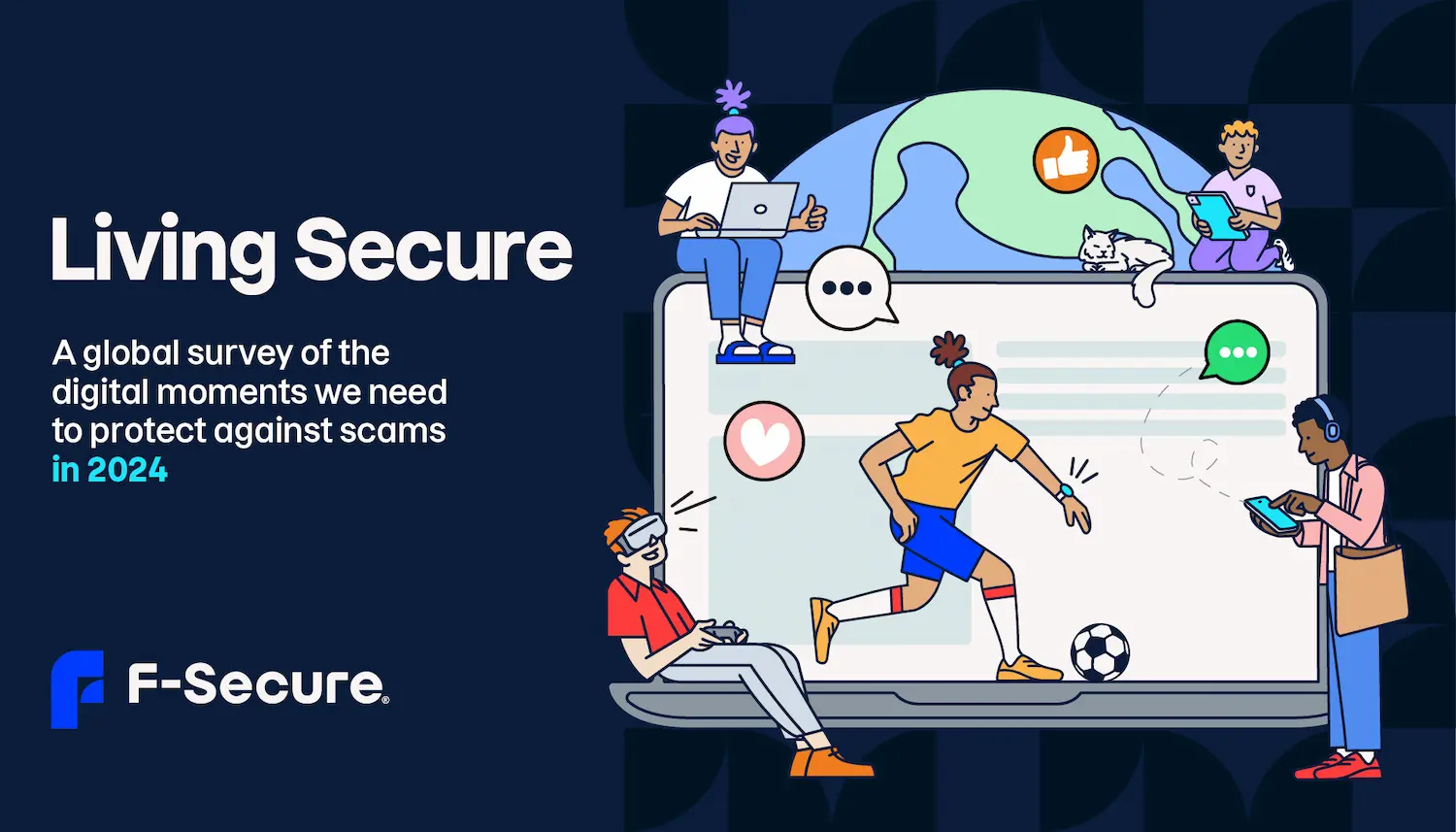In the 2024 F-Secure Living Secure survey, we evaluated the significance and effects of protecting our digital moments. The survey indicates that online concerns remain widespread, especially as technologies like generative AI make scams increasingly difficult to detect.
The latest survey collected insight from 7,000 people in seven regions around the world, highlighting the digital moments we need to protect in 2024. Our findings show that 7 in 10 people don’t know who to trust online, with over a third (36%) saying that they receive more scam attempts now than they did just 12 months ago.
Here, we feature five of the top scam stats from the 2024 Living Secure survey, from the prevalence of cyber scams to the effects that digital scams are having, and the resulting impact that they have on trust.
1. 34% of people have experienced cyber scams during the past 12 months
We found that a third of people (34%) experienced a cyber scam over the past 12 months, which was a 7% increase since 2022. For those 34% of people, a quarter (25%) suffered financial loss of some type and more than a third (36%) said that it had led to a loss of time.
2. 85% of people received a digital scam attempt
Our survey reveals that cyber crime has never been more prevalent. 85% of respondents said they had received a digital scam attempt, with 4 in 10 people receiving them on a weekly basis. And of the 7,000 people we questioned, 36% said that they get more scam attempts now than they did just 12 months ago.
3. 80% of respondents worry about their online safety
When compared to our 2022 results, it’s clear that trust continues to be a huge issue in our digital lives, with 80% of people surveyed in 2024 saying that they worry about their online safety – a 5% increase in the last two years.
4. 54% of cyber scams are conducted via email
Sending and receiving emails remained the top digital moment that we do at least weekly (at 88%). And so it comes as no surprise that the vast majority of cyber scam attempts are being conducted via email.
5. 7 in 10 people say that they don’t know who to trust online
Alongside general concerns about their online safety, the Living Secure survey found that a staggering 7 in 10 people don’t know who they can trust online. Sadly, despite spending more time in our digital moments, the survey reveals that we don’t feel any safer than we did two years ago. In fact, concerns have actually increased since 2022.
)
)
)
